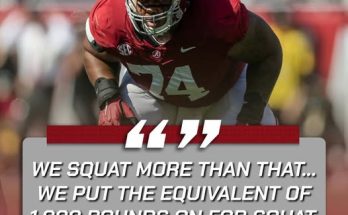Arch Manning, a name that echoes across the college football world as a potential generational talent, is emblematic of the new landscape that has come to define college sports in the NIL (Name, Image, and Likeness) era. As the son of Cooper Manning, the nephew of legendary NFL quarterbacks Peyton and Eli Manning, and a 5-star recruit in his own right, Arch Manning’s journey through the college football world is not only a reflection of his skill on the field but also of the immense influence of NIL and the modern transfer portal.
The world of college football has been rapidly transforming over the past few years, and Manning’s recruitment and subsequent choices have underscored this change. As the youngest member of the Manning family to make his mark on the football field, Arch entered a system already marked by increasing levels of professionalization. In recent years, the once-staid, rigidly structured world of college athletics has undergone a revolution, spurred by the introduction of NIL rights for athletes. The 5-star QB transfer portal stat, which has become increasingly significant in the NIL era, helps to illuminate just how far the game has shifted in terms of both player mobility and compensation.
Manning, who committed to Texas after an intense recruiting battle involving several top-tier programs, represents the new face of college football. His decision to enroll at the University of Texas as a highly coveted 5-star recruit drew immediate national attention, but the impact of his decision went beyond just his football prowess. Manning’s commitment to Texas was not merely about choosing a program with a strong football pedigree, but also about selecting a school that could provide ample exposure and potential for significant NIL deals, something that has become a crucial factor for elite athletes in the modern age.
In the past, top recruits like Manning might have made their decision based purely on football considerations: the offensive scheme, the chance to start, the program’s historical success, or perhaps the opportunity to play under a legendary coach. But in the age of NIL, all of these factors are weighed alongside the commercial opportunities that come with being a star college athlete. Arch Manning’s decision was no exception. As NIL deals have exploded in both size and scope, the financial implications of an athlete’s college choice have become an undeniable element of recruitment.
Texas, with its massive fanbase and high-profile media presence, was an ideal landing spot for Manning, who found himself in a situation that previous generations of college quarterbacks could only dream of: the opportunity to not only build a legacy on the field but also to leverage his name, image, and likeness for significant financial gain. With national endorsements and a high-profile presence, Manning stood to earn more in NIL deals than many professional athletes in other sports, and his name alone could boost the revenue of the Longhorns’ athletic department in ways not previously seen. This is the new reality of college football — a reality where star players can use their fame and skills to create opportunities for themselves that transcend the sport itself.
The rise of NIL has also coincided with the rapid expansion of the transfer portal, and Manning’s story is not just one of recruitment but also one of the new era of player mobility. In the past, a player’s commitment to a school would typically bind them to that institution for at least a few years, but the current era is marked by a much more fluid system in which players can move freely between programs, often with little to no penalty. The transfer portal has allowed players to seek out opportunities where they feel they can make the most impact, both on the field and in terms of building their brand. This is particularly evident in the quarterback position, where the competition for playing time is fierce and the opportunity to maximize NIL potential is ever-present.
In Manning’s case, though he has yet to make a move through the portal, his very presence at Texas and the decisions surrounding his recruitment and development have already had a ripple effect on the entire landscape of college football. The transfer portal, particularly for quarterbacks, has seen a record number of players move from one school to another in recent years. While the reasons for this movement are varied, the influence of NIL on these decisions is undeniable. Players are increasingly seeking out programs where they can make an immediate impact on the field, while also positioning themselves to maximize their earnings off the field.
The 5-star QB transfer portal stat is a powerful symbol of the current state of college football. It represents the intersection of player mobility, marketability, and the growing influence of NIL. With top-tier quarterbacks like Spencer Rattler, JT Daniels, and Caleb Williams all making waves in the portal in recent years, it’s clear that the transfer market for quarterbacks is not only active but also immensely lucrative. These athletes, many of whom are still in their early 20s, are seizing opportunities to capitalize on their talents both in terms of football and business.
As more and more quarterbacks have entered the portal, schools have had to adjust. Traditional powerhouse programs, once thought to be untouchable, are now vulnerable to the fluidity of the modern transfer portal. The battle for quarterbacks has become a complex mix of recruiting, retention, and NIL management. Programs that can offer not only the chance to play at a high level but also lucrative NIL opportunities are often the ones that come out on top in these battles.
For Manning, however, the situation is somewhat different. As a member of the Manning family, his value extends beyond just his on-field abilities. The Manning name is one of the most recognizable in football history, and Arch has the rare opportunity to build his brand in ways that most college athletes can only dream of. It’s a level of privilege and exposure that comes with a certain amount of expectation, but also with a tremendous amount of opportunity. Manning’s ability to leverage his name and likeness is a key part of his college experience, and it’s a part of the reason why his decision to play for Texas makes so much sense in today’s NIL-centric world.
At the same time, the rise of the transfer portal and the increasing emphasis on NIL has led to a shift in how we view college athletics as a whole. The notion of college football as a developmental system, where players spend years honing their craft at one institution, has been upended. Players, especially quarterbacks, are now making decisions based not only on where they’ll have the best chance to succeed on the field but also on where they can maximize their earning potential off it. This is particularly true for high-profile quarterbacks, whose NIL deals often dwarf those of other athletes. As a result, the college football landscape has become more like a professional sports league, with players navigating a marketplace where their value is determined by their skills, their name recognition, and their ability to capitalize on those assets.
Looking ahead, it’s clear that the NIL era will continue to shape the future of college football. Players like Arch Manning are just the beginning of a new generation of athletes who will not only make headlines for their play on the field but will also build their brands and businesses in ways that were previously unimaginable. As the transfer portal continues to grow and NIL deals become even more integral to the recruitment process, we can expect to see more players make the leap to schools that offer the best combination of football potential and financial opportunity.
In this new landscape, where mobility and marketability are paramount, the 5-star QB transfer portal stat serves as a perfect reflection of the shifting dynamics of college football. It’s no longer just about what happens on the field — it’s about what happens off it, too. The NIL era has fundamentally changed the way college football is played, consumed, and understood. And for Arch Manning, his place in this new world will likely be as much about his ability to navigate the evolving landscape of college football’s business side as it will be about his football skills. The days of amateurism in college sports are long gone, and with players like Manning leading the charge, the future of college football has never looked more lucrative — or more uncertain.



